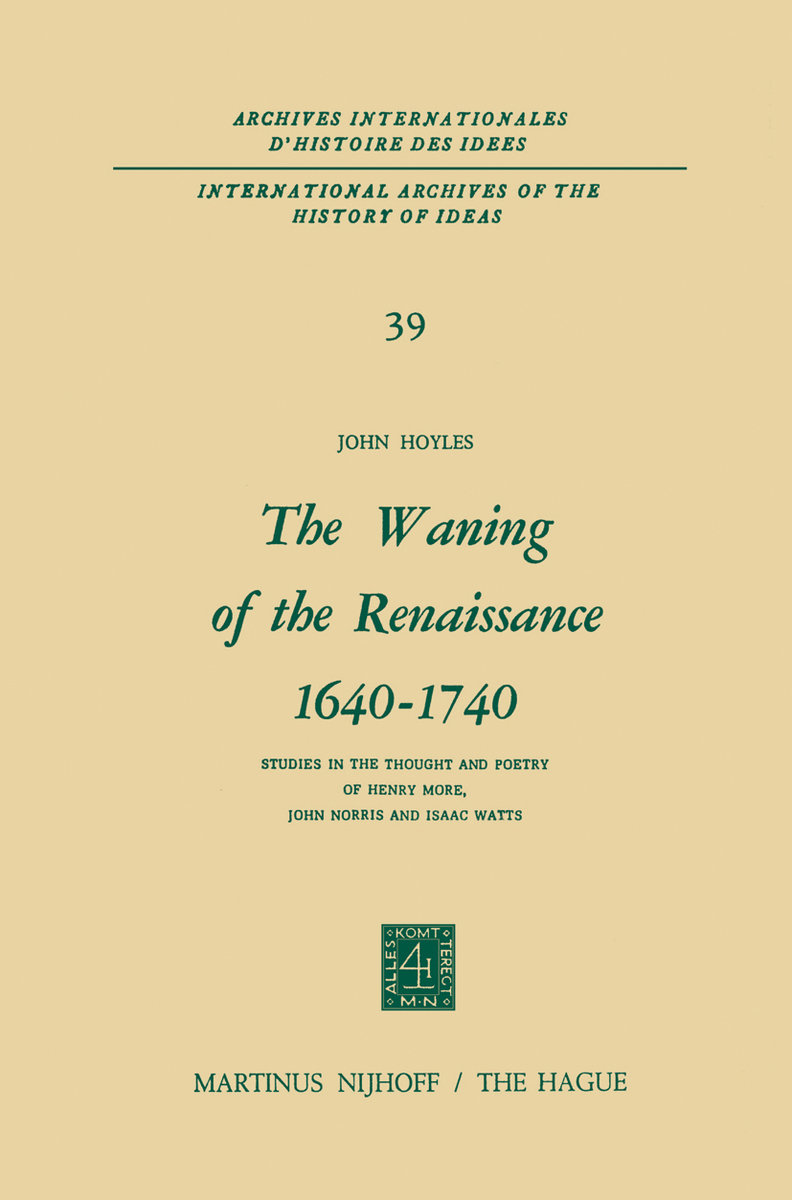It is not always easy to maintain a proper balance between the delineation of cultural development within a given literary field and the claims of practical criticism. And yet if the history of ideas is to be more than a pastime for the student of literature, it must be rooted in the precise art of discrimination. The following chapters attempt to describe and evaluate a particular cultural development by relating the background of ideas to the literary achievement of three writers. It will be sufficient here to out line the nature of the problem, and the method and approach employed. The concept of cultural development implies a recognition of the con nections between ideology and aesthetics. There are at least two ways of exploring such connections. The one, pioneered by Basil Willey, seeks to situate the critical moments of our cultural development in the back ground of ideas, without which the contribution of a particular author cannot be justly evaluated. The danger of such an approach is that the task of discrimination comes to depend over-heavily on extra-literary criteria.



